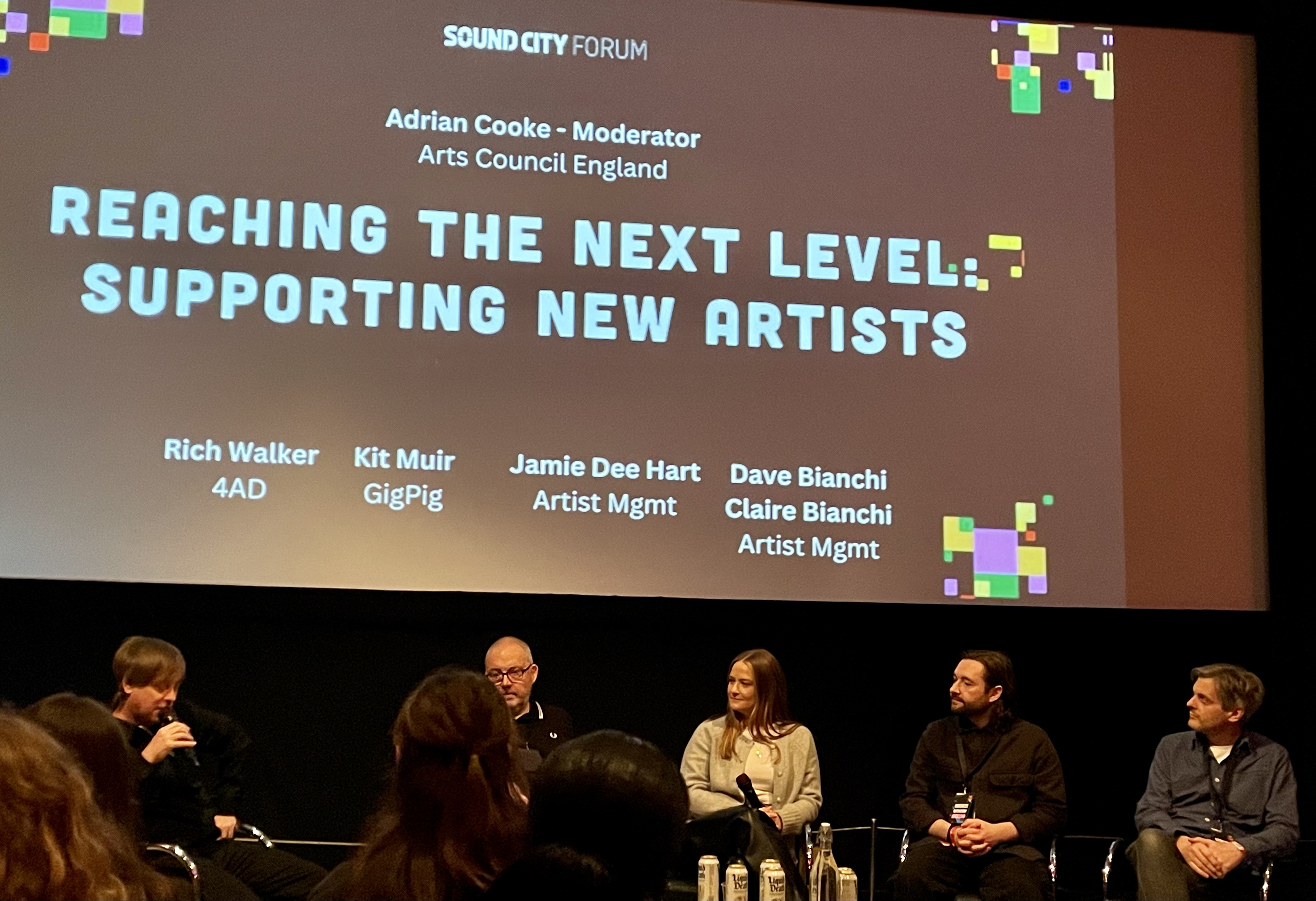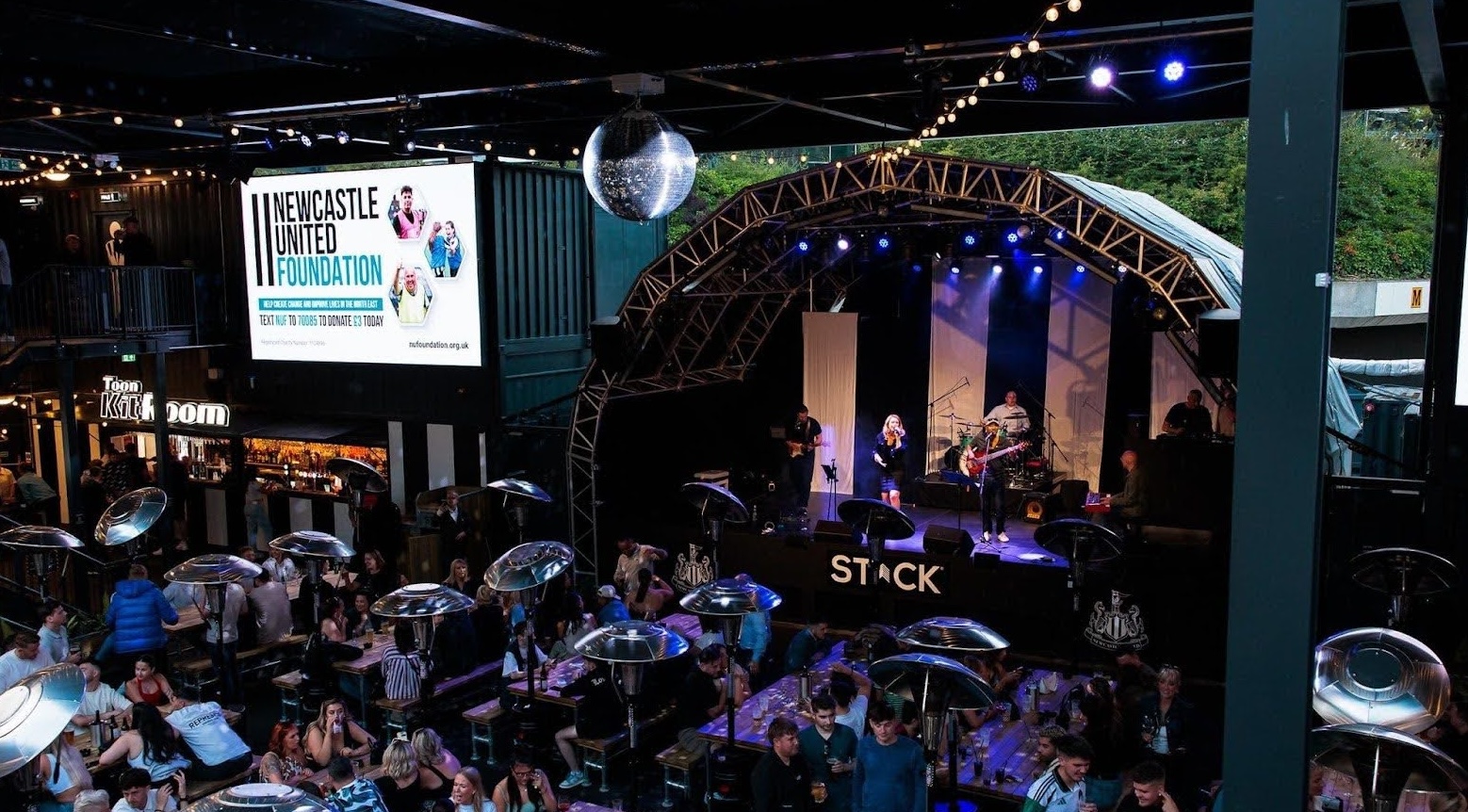
Key Takeaways from Sound City Liverpool
Sound City in Liverpool returned for their conference to inspire the new wave of emerging artists and help them navigate the music industry through insightful panels and experienced advice from leading voices in the sector.
What has been widely referred to in Liverpool as the defining voice for new music for over 15 years, Sound City has returned, including their conference event. It brings together some of the most influential voices in the industry, to provide invaluable insight to emerging artists.
Sound City Forum addressed the current issues in the music landscapes and how these will be mapped out over the next year whilst inspiring the next wave of artists in attendance. It ensured that all of the vital conversations in the music industry happened in Liverpool. Here are the key takeaways from the conference.
Music artists having the right attitude is essential in progressing their career in the industry.
President of Virgin Music, Vanessa Bosåen, was tapping into the extensive knowledge of Korda Marshall, who has had a career spanning more than 40 years, which has seen him become the managing director for two major record labels, as well as setting up his own. The keynote speaker provided invaluable insights throughout, which stemmed from his remarkable industry experiences. But the anecdote which resonated with the audience the most was that the attitude of a budding musician is crucial to earning a living in the industry.
Marshall, who has worked with Muse, The Darkness, James Blunt and The Enemy, stated: “You’ve got to have the right attitude to be ambitious, but there is a fine line between arrogance and confidence. You have three minutes to create magic, you need to navigate the right three minutes. By getting those three minutes right, then nothing can stop you. If you do that three times, then you have a career.”
He later added: “I would like to think that the industry is in a good place, as the gate-keepers in the industry have lost their keys, so there is more opportunity now to make that three-minute track.”
Regardless of the noise happening around them, musicians need to stay authentic to themselves and their sound.
The music industry has drastically evolved over the past decade to incorporate technology, and the defying aspect of that is the rise of TikTok, which can produce a viral song in a short clip. Aaron Bogucki, the founder of Big Cookie, spoke about the platform: “TikTok is still so important, but the engagement is shallow. It is great for creating awareness around your music but not for building a loyal fanbase. Don’t become a slave to the algorithm. It is really hard to get attention, so create content by being your natural selves.”
That point was reiterated by the digital marketing manager at Believe Digital, Peter Jacquaye, who said: “Nobody can guarantee virality, so keep authentic in your goals. If you go viral, you want it to be yourself, not because you’re pretending to be someone that you're not.” In an age when digital consumption dominates the music industry, staying true to who you are is key to cutting through the noise.
Working hard when starting your career is essential to getting into the music community.
A part of the Reaching The Next Level: Supporting New Artists panel, GigPig's co-founder perfectly encapsulated the feeling shared amongst his panellists, ‘Artists are the lifeblood of what we do.’ However, with more emerging artists having to work multiple jobs to facilitate progress in their career in music, it can stagnate their growth. The antidote that Kit suggested was actively gigging in bars and pubs. “By gigging, you are earning a living by doing what you love whilst earning your stripes and honing your craft, which can lead you to release your music,” he added.
The benefits of gigging for new musicians go well beyond gaining experience as it can help to build the musician's community, but it requires graft. “There are barriers to entry at every step, and we want to give the power back to the artists. But by getting involved in gigging, whether in a bar or pub, just getting in that room, you can build a community around your music, 5% of it is talent, and 95% is showing up.”
Understanding the direction you want to take your music is invaluable.
Navigating various obstacles in the music industry can be a daunting task when starting in the music business, especially when you look at those musicians around you who are producing a similar output to you. But taking the time to understand what you want to produce is essential. This was echoed by the artist manager Jamie Dee Hart, who said: “Everyone has a different definition of what being successful looks like. Creatives can now decide what they want to do, and that might not always be touring, but figuring that out first rather than chasing other people's dreams is okay.”
The relationships manager for Arts Council England, Adrian Cooke, provided advice to those artists in the audience who are looking to make that step in their career to choose a manager. “There is an element of self-management when starting. There is no rush in finding a manager, as you need to find the right fit for you. When it comes to choosing a manager, make sure they have got your career progression at the heart of what they do, not what is best for the manager's pocket,” he concluded.
Related news


.jpg)
.jpg)

.svg)

